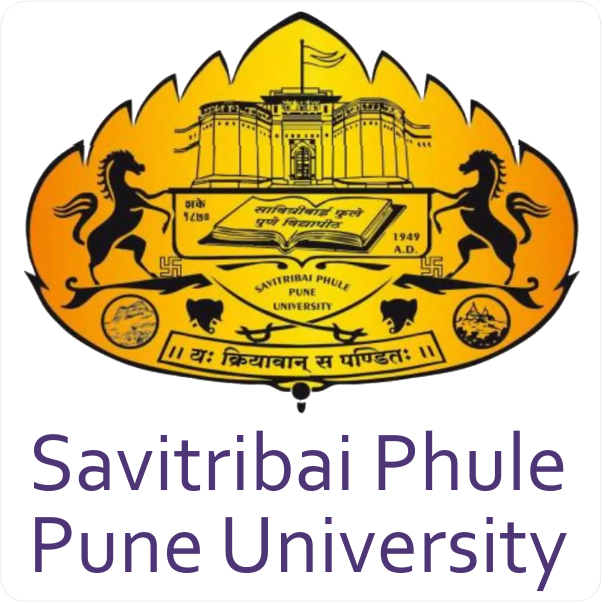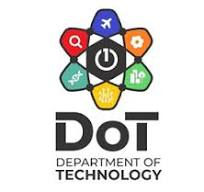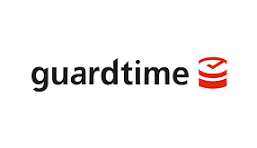Degree Awarded by

Department / Industry Partner


This B.Sc. in Blockchain Technology program blends technical depth with practical application, fostering the development of blockchain-based solutions across industries. Students gain hands-on experience in blockchain development, security, integration, and innovation, empowering them with future-ready skills aligned with ethical, legal, and entrepreneurial perspectives.
-
Blockchain Development – Smart Contract Mastery
Design and deploy decentralized applications using platforms like Ethereum, Hyperledger, and Solana. -
Security & Integrity – Cyber Trust Building
Implement cryptographic measures to secure blockchain networks and protect data authenticity. -
System Integration – Enterprise Adoption Focus
Embed blockchain within existing business systems to enhance transparency and operational efficiency. -
Innovation & Ethics – Responsible Tech Leadership
Explore emerging trends like DeFi, DAOs, and NFTs while adhering to legal and ethical frameworks.
-
Our blockchain curriculum initiatives span core areas—from infrastructure to applications. These projects empower developers to build secure, transparent, and decentralized systems, gaining hands-on expertise in smart contracts, identity, finance, storage, and interoperability.
-
Cryptocurrency Wallet: Create a secure digital wallet enabling users to store, send, and receive various cryptocurrencies. Integrates key management, transaction signing, and blockchain network APIs for real-world finance use.
-
Smart Contract Library: Develop and deploy reusable smart contracts (ERC‑20, ERC‑721) on platforms like Ethereum or Tezos. Automates agreements, token minting, and access control with decentralized verification.
-
Decentralized Voting System: Implement a tamper‑proof voting dApp using on‑chain ballots. Ensures voter anonymity, transparent result tallying, and immutable audit trails for democratic integrity.
-
Supply Chain Tracker: Build an end‑to‑end tracking system using blockchain to record provenance events. Enhances transparency, reduces fraud, and automates shipping milestones via smart contracts.
-
Decentralized File Storage: Integrate IPFS/Filecoin to store and retrieve encrypted files across nodes. Leverages proof-of-replication for redundancy and network incentives.
-
Digital Identity Platform: Design a self-sovereign identity solution with verifiable credentials. Supports decentralized registration, attestations, and selective disclosure across applications.
-
The B.Sc. in Blockchain Technology offers a unique blend of academic depth and industry relevance. Backed by Savitribai Phule Pune University and Techversity, the program ensures students are not only future-ready but also industry-prepared. With immersive learning, hands-on projects, and a stipend-supported apprenticeship, learners gain both knowledge and practical exposure—emerging as skilled professionals ready to contribute meaningfully to the rapidly evolving blockchain ecosystem.
-
Industry-Aligned Curriculum: Courses are co-designed with Techversity to meet current industry demands, covering core topics like smart contracts, DeFi, NFTs, and blockchain scalability, ensuring practical, job-ready learning outcomes.
-
Earn While You Learn: Students receive a minimum monthly stipend of ₹9,000 during the final year, offering financial support while gaining real-world industry experience through internships and apprenticeship opportunities.
-
Freshers with Experience: Graduates complete the program with a full year of industry exposure, enabling them to position themselves as experienced professionals, giving them a distinct edge in job placements.
-
Multidisciplinary Learning Approach: The program integrates skills in data science, cybersecurity, programming, and AI, preparing students for diverse roles across industries such as fintech, supply chain, healthcare, and governance.
-
Backed by Reputed Institutions: Offered by the prestigious Savitribai Phule Pune University with Techversity as the industry partner, the program carries strong academic credibility and practical mentorship from experienced blockchain professionals.
-
-
Financial Services & Banking: Blockchain accelerates cross-border payments, streamlines trade finance, and eliminates intermediaries. Banks like JPMorgan and Citi use digital coins for intraday transactions, enhancing speed and security in global finance.
-
Healthcare: Blockchain secures electronic health records, streamlines clinical research, and tracks pharmaceutical supply chains. It ensures immutable, transparent data sharing among providers, improving patient privacy and medical outcomes.
-
Supply Chain & Logistics: Blockchain ensures provenance and transparency from origin to delivery. Platforms like TradeLens by Maersk/IBM use smart contracts to improve trust, reduce fraud, and boost efficiency in shipping and freight.
-
Government & Voting: Public sectors explore blockchain for voter registration, transparent ballots, land registry, and identity verification, aiming to reduce bureaucracy, enhance transparency, and prevent fraud in civic processes.
-
Cybersecurity & Identity: Decentralized ID systems and secure data storage protect against breaches. Blockchain improves authentication, access control, and personal identity management across industries, reducing centralized points of vulnerability:
-
Media, Entertainment & NFTs: Blockchain enables tokenization of art, music, and collectibles via NFTs. It empowers creators with royalties, provenance tracking, and direct fan engagement—reshaping digital ownership and monetization.
-
-
Tokenomics Specialist: Designs and analyzes the economic models of blockchain-based tokens. They ensure sustainable value creation, supply mechanisms, and incentive structures for projects like cryptocurrencies, DeFi protocols, and NFTs.
-
Blockchain Developer: Designs and builds blockchain-based systems, including consensus protocols, architecture, and infrastructure. They focus on backend development using platforms like Ethereum, Hyperledger, or Solana to create secure, scalable solutions.
-
Smart Contract Developer: Specializes in writing, testing, and deploying smart contracts using languages like Solidity or Vyper. They ensure contract logic is secure, bug-free, and compatible with blockchain platforms like Ethereum.
-
Blockchain Quality Assurance (QA) Engineer : Tests blockchain applications, smart contracts, and networks for bugs, vulnerabilities, and performance issues. Develops automated test scripts and ensures the reliability of decentralized systems before deployment.
-
Decentralized Application (DApp) Developer: Develops end-to-end decentralized applications by integrating smart contracts with front-end interfaces. They work with Web3.js, React, and blockchain APIs to deliver user-friendly, blockchain-powered solutions.
-
Blockchain Architect: Designs the overall blockchain infrastructure, selecting protocols, designing data flow, and ensuring scalability, interoperability, and security. Collaborates with developers and business stakeholders to create robust blockchain ecosystems.
-
Blockchain Legal and Compliance Analyst: Interprets and applies regulatory frameworks related to blockchain, crypto assets, and data protection. Advises companies on compliance with global financial, privacy, and smart contract laws.
-
Blockchain Consultant: Advises organizations on implementing blockchain strategies tailored to their business needs. They assess feasibility, recommend platforms, and guide on compliance, integration, and transformation planning.
-
Crypto Analyst: Researches cryptocurrency markets, analyzes trends, and evaluates blockchain projects or tokens. They use financial models and blockchain data to provide insights for investment and trading decisions.
-
NFT Strategist / Manager: Develops and manages NFT campaigns for brands, artists, or platforms. They work on creation, marketplace positioning, and community building, ensuring digital assets reach targeted audiences effectively.
-
Blockchain Project Manager: Manages the end-to-end lifecycle of blockchain initiatives, from planning to deployment. Coordinates between technical teams, stakeholders, and clients, ensuring deadlines, budgets, and quality benchmarks are met.
-
Blockchain Researcher: Explores new blockchain protocols, consensus mechanisms, and use cases. Works in academia or R&D teams to contribute to whitepapers, patents, or advancements in blockchain scalability, security, and efficiency.
-
IT Professional in Blockchain: Supports blockchain systems in areas such as system administration, DevOps, or IT security. Ensures blockchain nodes, APIs, and network services are deployed, monitored, and maintained effectively.
-
Systems Integrator for Blockchain Solutions: Integrates blockchain with existing enterprise systems such as ERP, CRM, or supply chain platforms. Ensures seamless data flow, API connectivity, and compliance with business processes and regulations.
-
Blockchain UX/UI Designer: Designs user interfaces for decentralized apps and platforms. Focuses on improving user experience by making blockchain features (like wallets, token swaps, and voting) intuitive and user-friendly.
-
B.Sc. Blockchain Technology
Apprenticeship Embedded
(Min. 9000/- PM for 12 Months)
The B.Sc. in Blockchain Technology is a future-focused, four-year undergraduate program offered by the Department of Technology, Savitribai Phule Pune University, in collaboration with Techversity as its industry partner. The program blends academic learning with real-world application, offering a ₹9,000/month stipend during the 7th and 8th semesters. Students graduate as freshers with experience, equipped with technical and industry-ready skills in blockchain systems and decentralized technologies.








